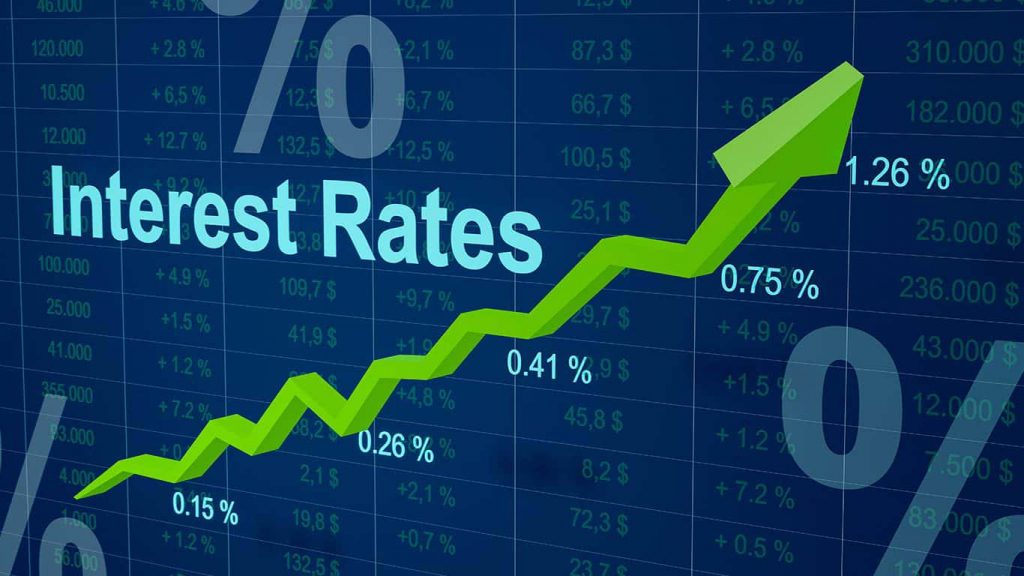
Home prices have been rising in double digits for the 25th week. Last week’s 0.75-point Fed rate hike was a measure that drove many potential home buyers out of the market. Will the Fed rate hike increase competition and cause home prices to fall as lenders charge higher rates on mortgages?
Inflation, Interest Rates and the Housing Market
The epidemic and its associated problems have led to a surge in home prices. Rising demand for single family homes, rising material costs and supply chain disruptions only added fuel to the fire.
It was a basic pattern of supply and demand. As the supply of housing in the market declined, the ever-increasing demand for housing created intense competition among potential homeowners and drove home prices up.
Rising home prices became one of the causes of inflation. The Brookings Institution explains that the sale price of a home is not defined as a consumer price index (CPI), but that the cost of purchasing (or “consuming”) a home is insufficient. In May 2022, the Consumer Price Index increased 8.6 percentage points over the same period last year. The main components of this increase are housing, gasoline, and food.
The increase in housing costs is due to rising home prices and rising rents. In the first quarter of 2019, the average home price was $313,000. By the first quarter of 2022, the average price reached $428,700, an increase of more than 31%.
Low interest rates kept the housing market hot. During 2020 and 2021, many regular and first-time homebuyers fell despite record home price increases as low interest rates made monthly mortgage payments manageable.
To curb consumer demand and lower inflation, the Fed has raised short-term interest rates three times this year. And this affects long-term interest rates in the mortgage market and the auto industry.
How the Fed Rate Hike Affects Mortgage Loan Rates
The Fed sets the federal funds rate as the benchmark rate that U.S. banks charge each other for overnight loans to meet reserve requirements. Simply put, raising federal rates makes it more expensive for banks to borrow money, and that often leads to higher costs for borrowers. The 2022 Fed rate hike is the third time the Fed rate hike has occurred.
So the Fed rate hike does not directly raise the home mortgage rate, but it is an important reason why the bank is charging new homeowners more for 30-year mortgages.
Realtor.According to a recent com report on the housing market, typical homebuyers can expect to pay 39% more on mortgages today than they did a year ago. And it may be harder for homebuyers to get secured loans. The Mortgage Bankers Association announced that mortgage loan payments have fallen for three straight months, indicating that lending standards are getting tougher.
Where is the housing market headed?
As Americans come under pressure from higher mortgage rates in addition to high home prices and record inflation, falling new home prices are preparing to impact the housing and mortgage markets.
Following the Fed’s announcement last week, Fannie Mae chief economist Doug Duncan said he expects home sales to slow and financial activity to decline in the coming months.
At the same time, the Mortgage Bankers Association reported that mortgage applications were down 5 percent because of high mortgage rates and ‘weakened’ demand.”
Lawrence Yun, chief economist for the American Real Estate Association (NAR), said in a statement following the Fed’s recent announcement that higher mortgage rates would slow the housing market and reduce the pool of buyers. A recent Redfin report on the housing market predicts that the number of homeowners will decline and the boom in home sales will slow down.
According to a recent CoreLogic Homeflice Insight report in the U.S., a Fed strike to curb consumer demand could calm home buyers and cause prices to decline in some markets.
While rising interest rates are causing the biggest changes in the housing market, the monthly supply of new homes is increasing and the active inventory of available real estate is slowly increasing. For both sellers and buyers, depending on the domestic real estate market, this may mean that the bidding war is no longer a reliable thing as demand declines and supply begins to increase.
What this means for home buyers
High interest rates will drive many potential home buyers out of competition, easing the intense competition of the past two years. However, it is still unknown whether home sale prices will fall significantly enough to offset the rise in mortgage interest rates.
The Fed’s rate hike is designed to slow inflation and may eventually balance the housing market. However, higher interest rates can lead to overall economic growth, affect employment, and lead the country into a recession or recession.
The decline in home prices may have occurred before your eyes, but rebalancing may take some time. Knowing that now is the best time to buy depends on personal finances and circumstances. In any economic situation, the wisest decision is to talk to a financial advisor to understand how buying a home can affect you now and in the future.



GIPHY App Key not set. Please check settings